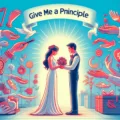Relationships are complex, and even the strongest couples can face challenges that require guidance and support. Couples counseling has become a crucial avenue for partners seeking to improve their communication, resolve conflicts, and strengthen their connection. In this comprehensive guide, we’ll explore 15 essential skills and techniques used in couples counseling that can help partners build a healthier, more fulfilling relationship.
Understanding Each Other’s Love Languages
One of the foundational aspects of couples counseling is helping partners understand each other’s love languages. This involves recognizing how each person expresses and receives love, whether it’s through words of affirmation, acts of service, receiving gifts, quality time, or physical touch.
Active Listening
Active listening is a skill that requires one to fully concentrate, understand, respond, and remember what is being said. It’s about being present and engaged without prematurely judging or offering solutions.
Effective Communication
Communication goes beyond just talking; it’s also about being able to express thoughts and feelings clearly and respectfully. Counselors often teach techniques such as ‘I’ statements to facilitate healthier exchanges.
Conflict Resolution
Learning to resolve disagreements without damaging the relationship is a critical skill. This includes techniques like identifying underlying issues, compromising, and finding common ground.
Empathy Development
Empathy is the ability to understand and share the feelings of another. In couples counseling, partners work on developing a deeper empathy for one another to enhance emotional connection.
Setting Boundaries
Boundaries are essential in any relationship. Counselors help couples establish and respect personal limits to promote a sense of security and individuality within the partnership.
Rebuilding Trust
Trust is the cornerstone of any relationship. When it’s broken, counselors provide strategies for rebuilding it, which may include transparency, consistency, and patience.
Enhancing Intimacy
Intimacy isn’t just physical; it’s also emotional and mental. Couples learn ways to deepen their intimacy by sharing experiences, dreams, and vulnerabilities.
Managing Expectations
Unrealistic expectations can lead to disappointment. Counseling helps couples set realistic goals and understand that perfection is unattainable.
Personal Growth and Self-Care
Individual well-being is crucial for a healthy relationship. Counselors encourage personal growth and self-care practices that benefit both partners and the relationship.
Parenting as a Team
For couples with children, aligning on parenting styles and decisions is vital. Counseling can help partners present a united front for the well-being of their family.
Financial Planning
Money can be a significant source of stress. Couples counseling can assist in creating a financial plan that works for both partners.
Dealing with External Stressors
External pressures such as work or family can impact a relationship. Counselors teach coping strategies to manage these stressors effectively.
Creating Shared Meaning
Relationships thrive when couples have shared goals and values. Counseling helps identify and build upon these shared meanings.
Planning for the Future
Looking ahead and making plans for the future can strengthen a couple’s bond. This includes discussions about career goals, retirement, and other long-term plans.
FAQ
What is couples counseling?
Couples counseling is a type of psychotherapy that helps partners identify and resolve conflicts and improve their relationship.
How long does couples counseling typically last?
The duration of couples counseling can vary depending on the couple’s needs, but it often ranges from a few sessions to several months.
Can couples counseling actually save a relationship?
While not all relationships can be saved, many couples find that counseling provides the tools and perspective needed to make significant improvements.
Should we go to counseling before we have problems?
Many couples find it beneficial to attend counseling proactively, as it can provide skills and insights that prevent future issues.
Are the skills learned in couples counseling applicable outside of the relationship?
Yes, the communication and interpersonal skills learned in couples counseling can be useful in other areas of life, such as friendships and professional relationships.









